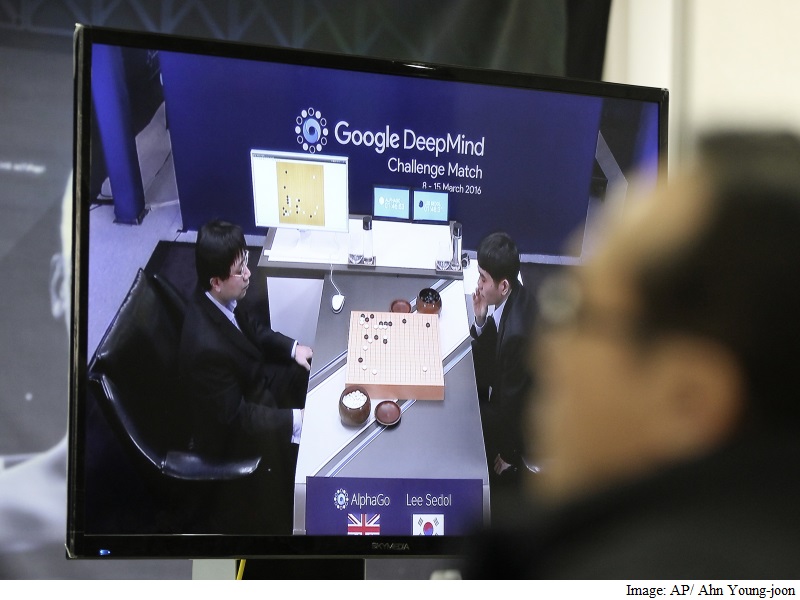- Home
- Science
- Science Features
- All About Go, the Ancient Game in Which AI Bested a Master
All About Go, the Ancient Game in Which AI Bested a Master

The rules of Go, the ancient Chinese board game that is the stage for a man-vs-machine battle this week, are beautifully simple. Actually playing it is anything but.
Go is considered to be far more complex than chess, making it remarkable that a cutting-edge computer program by Google has swept the first two games of a five-game match against a human Go champion, Lee Sedol. Global Go fans were shocked, artificial intelligence experts called the moment historic and Google DeepMind CEO Demis Hassabis compared the victory to landing on the moon.
(Also see: Google's AlphaGo Takes 2-0 Lead in Five-Game Go Match Versus Lee Sedol)
But if you are outside Korea, Japan or China, you may have never heard of the game until this week. Here are the basics:
What is Go?
In Go, also known as baduk in Korean and weiqi in Chinese, two players take turns putting black or white stones on a 19-by-19 square grid. The goal: to put more territory under one's control by surrounding vacant areas with the stones.
Many Asian people see it as not just a game but also a reflection of life, one's personality and temper. There are nearly infinite ways to play Go, and each player has his or her distinctive style. That's partly the reason the game has been particularly difficult for artificial intelligence to master.
(Also see: Google Mastered a Game That Vexed Scientists - and Their Machines - for Decades)
The game is more than 3,000 years old. There are more than 40 million Go players around the world, most of them in East Asia. More than 1,000 professional players make their living by playing the game.
South Korean TV channels show Go matches and teaching strategies all day. A popular online cartoon that was made into a TV drama series featured a main character who failed to become a professional Go player after spending his childhood dedicated to Go.
How to play
A player with black stones places a stone first. To offset the advantage of making the first move, compensation points are given to the white-stone player. Each country has a different rule about how many compensation points are given.
Stones can be placed only on the grid's 361 intersections. They cannot be moved once they are placed on the dots, but they can be captured and removed, either alone or in a group, when they are surrounded horizontally and vertically by the opponent's stones. Captured stones are called prisoners.
To take control of territory, players surround vacant areas with their stones. The game goes on until both sides agree and there are no more places to put one's stones, or until one side decides to resign in an apparent loss.
When the game is over, each player counts the number of vacant dots inside his or her territory. There is a bonus point for each prisoner.
Strategies
The simple round stones can become attackers, supporters and defenders, turning the grid into a battlefield of life and death. Just like in real life, the game is full of twists and turns.
Stones could be at one point on the offense to capture the enemy, and be on the run the next. A move that initially appears to be a fatal mistake could turn out to be the critical one that seals the winner. In South Korea, that's called a divine move.
Players sometimes have to abandon stones to stem the losses and minimize the damage.
From these infinite possibilities, Go players find many life lessons. Famous Go lessons include:
-One should take care of oneself before faulting others.
-Greed could blind oneself from important issues.
-There is no stone without meaning.
Kim Jung-min, a staff writer for South Korea's sole monthly magazine on Go, said reading the other player's next moves is the fun of the game. Trying to respond to an opponent's surprise attack is also a joy.
Customs
There is a specific way to hold the stones: between the index and the middle fingers, and only with the right hand. Players are banned from making noise with the stones. Chatting is likewise banned, because the game requires utmost focus.
For details of the latest launches and news from Samsung, Xiaomi, Realme, OnePlus, Oppo and other companies at the Mobile World Congress in Barcelona, visit our MWC 2026 hub.
Related Stories
- Samsung Galaxy Unpacked 2026
- iPhone 17 Pro Max
- ChatGPT
- iOS 26
- Laptop Under 50000
- Smartwatch Under 10000
- Apple Vision Pro
- Oneplus 12
- OnePlus Nord CE 3 Lite 5G
- iPhone 13
- Xiaomi 14 Pro
- Oppo Find N3
- Tecno Spark Go (2023)
- Realme V30
- Best Phones Under 25000
- Samsung Galaxy S24 Series
- Cryptocurrency
- iQoo 12
- Samsung Galaxy S24 Ultra
- Giottus
- Samsung Galaxy Z Flip 5
- Apple 'Scary Fast'
- Housefull 5
- GoPro Hero 12 Black Review
- Invincible Season 2
- JioGlass
- HD Ready TV
- Latest Mobile Phones
- Compare Phones
- Nothing Phone 4a Pro
- Infinix Note 60 Ultra
- Nothing Phone 4a
- Honor 600 Lite
- Nubia Neo 5 GT
- Realme Narzo Power 5G
- Vivo X300 FE
- Tecno Pop X
- MacBook Neo
- MacBook Pro 16-Inch (M5 Max, 2026)
- Tecno Megapad 2
- Apple iPad Air 13-Inch (2026) Wi-Fi + Cellular
- Tecno Watch GT 1S
- Huawei Watch GT Runner 2
- Xiaomi QLED TV X Pro 75
- Haier H5E Series
- Asus ROG Ally
- Nintendo Switch Lite
- Haier 1.6 Ton 5 Star Inverter Split AC (HSU19G-MZAID5BN-INV)
- Haier 1.6 Ton 5 Star Inverter Split AC (HSU19G-MZAIM5BN-INV)

















